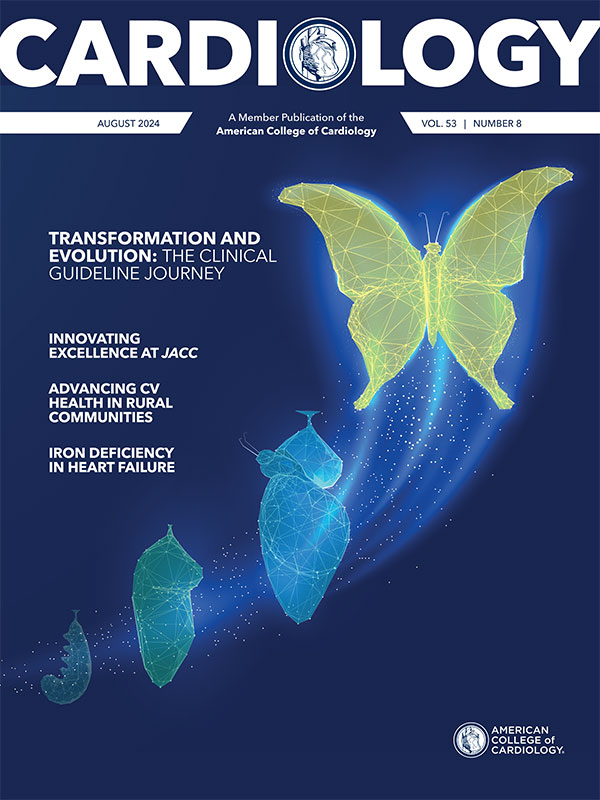JACC Series Explores AI Advancements and Applications in CV Care Delivery

With the continued emergence of artificial intelligence (AI) into the health care space, touching nearly every part of the patient journey, a two-part series published in JACC highlights some of the most recent AI advancements in cardiovascular care, as well as explores potential future applications for further enhancing diagnosis, treatment and outcomes of individuals living with, or at risk of, heard disease.
"AI technologies have shown early promise in screening for disease, integrating disparate imaging data sources into composite assessments, providing workflow efficiencies through preprocessing of images, and assisting clinicians with more accurate diagnoses," according to Pierre Elias, MD, et al., in Part 1 of the series focused on advances.
The review summarizes some of the current uses of AI models to detect cardiovascular disorders like reduced ejection fraction, valvular heart disease and cardiomyopathies and showcases key advances in four imaging modalities where some of the most impactful advancements and improvements in acquisition, measurement and diagnostic capacity have occurred.
"Applications span wearables, electrocardiograms, echocardiography, angiography, genetics, and more," say Elias and colleagues. However, they caution about the lack of clinical trials showing improvement in patient outcomes and suggest that "embracing this rapidly evolving technology while setting a high evaluation benchmark will be crucial for cardiology to leverage AI to enhance patient care and the provider experience" going forward.
Because of the advances in AI, applications of AI to cardiovascular care have also accelerated, according to Sneha S. Jain, MD, MBA, et al., in Part 2 of the series. The review explores "the larger context in which AI-augmented care may exist" within areas like cardiovascular imaging, coronary angiography, genetics and multiomics, electronic medical records, etc.
Jain and colleagues also discuss the need for "rigorous evaluation, appropriate infrastructure for deployment, ethics and equity assessments, regulatory oversight, and viable business cases for deployment to fully realize the potential of AI.
"Realizing the potential for AI in cardiovascular medicine will require a concerted effort by our cardiology community to develop, test, and implement these technologies into our practice, continually evaluating where AI can and cannot provide significant value," they write. "As AI research progresses and the technology matures, it is vital for the cardiology community to engage actively with these developments and ensure AI tools and associated AI-assisted clinical workflows are validated, ethical, and effective for patient care."
Keywords: Cardiology Magazine, ACC Publications, Artificial Intelligence, Quality of Health Care, Delivery of Health Care

